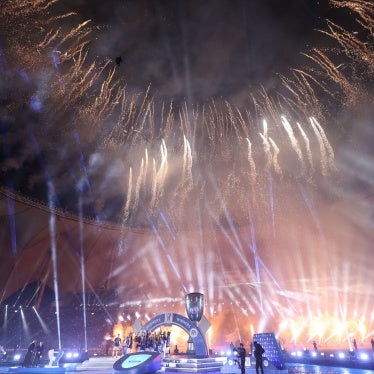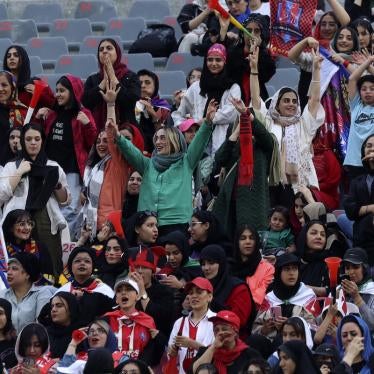A new Football Governance Bill currently being debated in the United Kingdom’s parliament will establish a much-needed independent regulator for English football. It is being established, following years of rising financial inequality between clubs, greed, and the politicization of the game, which was typified by a failed attempt by six of the larger football teams to break away from English football and join a European Super League in 2021.
However, unless a dangerous provision is repealed, the bill could leave a backdoor open in the legislation to states looking to “sportswash” their rights abuses through English football.
A key function of the new regulator will be to improve the current “owners’ and directors’ test” that is used to assess the suitability of prospective football club owners and directors. This test was shown to be ineffective in October 2021, when it failed to block the takeover of Newcastle United by Saudi Arabia’s sovereign wealth fund, the Public Investment Fund (PIF), credulously relying on false assurances the Saudi state does not control the PIF.
The bill proposes new disqualification criteria for prospective owners, including looking into whether the source of owners’ wealth is linked to “serious criminal conduct,” such as environmental crimes, a criteria which would have clearly blocked the acquisition of Newcastle United, and also the acquisition of Manchester City by the United Arab Emirates (UAE) in 2008.
However, a regressive clause in the bill will undermine the regulator's independence, and has led to organizations such as Fair Game and FairSquare saying it may lead to an increase in state ownership of English football clubs. Section 37(2) requires the regulator to consider the UK governments “foreign and trade policy objectives” when assessing prospective owners, which could hamper the regulators’ ability to block allied state actors from acquiring football clubs. Clearly, given the UK’s trade interests in the region, countries like Saudi Arabia or UAE seeking to acquire teams could trigger the application of Section 37(2).
Sportswashing is on the rise across global sport. Authoritarian states are increasingly looking to sport and sports’ infrastructure as potential public relations vehicles to launder their reputations and exert geopolitical influence. Acquiring football clubs has proved a particularly effective sportswashing tactic, as they hold considerable cultural significance and lobbying power. This is especially true in the UK, where teams enjoy a cult-like following.
The future of English football is at a critical juncture. UK lawmakers have an opportunity and responsibility to uphold human rights and should ensure this back door to rights abusers is closed. Anything less would be an own goal for English football.









